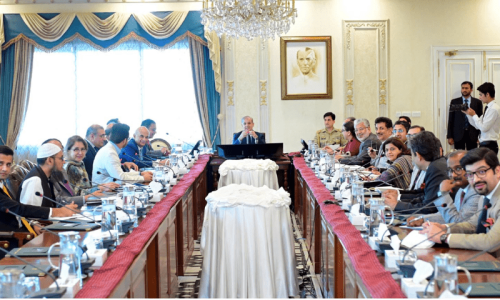NEW DELHI, July 22: Congress party stalwart Pranab Mukherjee, shored up by the left and the right of the spectrum, was elected on Sunday India’s 13th President, a largely ceremonial post that can acquire crucial powers in the current climate of inconclusive polls and fractious coalition governments.
Mr Mukherjee was declared the winner with close to 70 per cent of the votes cast by an electoral college of state legislators and federal MPs against a remaining 30 per cent going to former Lok Sabha speaker P. A. Sangma.
Reports said Mr Sangma was among the national leaders to congratulate Mr Mukherjee but he had not withdrawn a threat to take the presidential election to the court.
The Press Trust of India quoted Mr Sangma as saying the election process was “exceptionally partisan”.
He alleged that states not ruled by the Congress or its allies were lured with packages and inducements and even given threats.
Mr Sangma was backed in the contest by the main opposition Bharatiya Janata Party, along with a few regional groups. The Congress nominee was supported curiously enough by Mumbai’s Hindu chauvinist Shiv Sena and the communist-led Left Front, reflecting a consensus on a candidate who claims unprecedented corporate support.
Mr Sangma said he saw a compelling need for formulating an election code of conduct for the presidential and vice presidential polls. A code will ensure free and fair elections, he said.
“The process in this presidential election has been exceptionally partisan and political,” PTI quoted him as saying. “The public perception is certainly that in identification and projection of its candidate, UPA did not genuinely build consensus and that it persuaded political parties commanding major sections of the presidential electoral college by economic and other packages...as well as inducements, threats and promises,” Mr Sangma told reporters in New Delhi.
He alleged that the spirit of secrecy of ballot was “thrown to the wind”. Reports said several BJP MPs and state legislators had voted against their party’s choice and in favour of Mr Mukherjee. On moving the courts, Mr Sangma said: “For the survival of democracy, logically it should be... but I have not taken a final decision...The day after tomorrow we will meet and take a final decision.”
Mr Mukherjee, 77, was inducted as finance minister in Indira Gandhi’s cabinet in 1982 but was shunned by her son during his 1984-89 tenure, mainly to thwart a lobby that wanted Mr Mukherjee to succeed the slain Mrs Gandhi as prime minister. He endeared himself to the current Congress leadership by controversially leading a “coup” against a rare backward caste Congress president Sitaram Kesri who was replaced by Ms Sonia Gandhi.
The win in the presidential poll has buoyed the politically stymied and scam-tainted Congress although Mr Mukherjee’s victory has also triggered a jockeying by powerful straps for several key posts he vacated. The new president will be formally sworn in on Wednesday.














































Dear visitor, the comments section is undergoing an overhaul and will return soon.